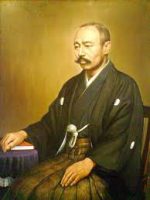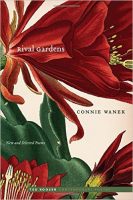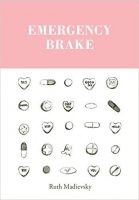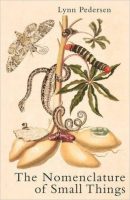February 17, 2017
Edited by David Sanders
Specimen Days
1836—Gustavo Adolfo Bécquer, Spanish poet (d. 1870), is born.
1862—Mori Ōgai, Japanese novelist and poet (d. 1922), is born.
1863—Fyodor Sologub, Russian symbolist novelist and poet (d. 1927), is born.
1864—Andrew Barton "Banjo" Paterson, NSW Australia, poet (Waltzing Matilda), is born.
1877—Henri Vandeputte, Belgian author/poet (L'homme Jeune), is born.
1878—Jose Amador de los Rios, Spanish historian/poet, dies at 59.

under the blue sky
in a dewy cornfield
basking
in the morning sunlight
a caramel-colored cow
—Mori Ōgai
[translated by Makoto Ueda]
“under the blue sky / in a dewy cornfield / basking” —Mori Ōgai [translated by Makoto Ueda]
World Poetry
Former Lover of the Poet Known as Iran's Sylvia Plath Breaks His Silence

Forty miles south of London, in a quiet West Sussex village, lives a 94-year-old Iranian intellectual who has for half a century kept silent about his former lover, a giant of modern Persian literature who was killed in a car accident aged just 32. But 50 years after Forough Farrokhzad’s sudden death, the reclusive Ebrahim Golestan has finally broken his silence, speaking out about the seriousness of their relationship and describing her as a poet who wrote honestly about the most fundamental human emotions.
Acclaimed Chilean Poet Raúl Zurita on What Led Him to Create The Sea of Pain

Chilean poet Raúl Zurita says he was shaken when he saw the image of a drowned Alan Kurdi lying face down on a beach in Turkey in September 2015. At the same time, he felt there was something missing. What was missing, he says, was the little boy’s elder brother, five-year-old Galib, who had also died when the boat carrying them capsized in the Mediterranean Sea. “This is how images show and hide something at the same time,” says Zurita, who has penned a poem in the memory of Galib on the walls of Aspinwall House, the main venue of the ongoing Kochi-Muziris Biennale in Fort Kochi, Kerala.
Forty miles south of London lives a 94-year-old Iranian intellectual who has for half a century kept silent about his former lover, a giant of Persian literature.
Recent Reviews
‘Pandemonium’ Is Full of Urgent, Involving and Rewarding Poems
by John McAuliffe

Intimate, occasionally rhymed and then, suddenly, a little obscure. The distinctiveness of Thomas McCarthy’s poems is most evident, strangely, in those obscure details, which are often bracingly unintimate, hard and unfriendly as an X-ray, or a diagnosis. Delayed while his long-time publisher, Anvil, buckled under Arts Council cuts, McCarthy’s new collection, Pandemonium (Carcanet, £9.99), feels both overdue and timely.
Poetry To Pay Attention To: A Preview Of 2017's Best Verse
by Craig Morgan Teicher
America's greatest triumph is its diversity: the multiplicity of peoples, identities, and voices all gathered and vitally alive in one country. Nothing attests to this diversity more profoundly than American poetry, which elevates those voices to song. At its best, our poetry refutes hate, represents and finds harmony in difference, counters generality with nuance, and speaks out against injustice. These poets of 2017 represent the best of America, its fierce outrage, its passionate acceptance of divergent ideas and beliefs.
Rejection is Seductive: Elisa Gabbert’s L’Heure Bleue
by Matt Mullins
Elisa Gabbert’s unique gift is the ability to resurrect the cliché, which she does by reformulating common sense as a question and then attaching the well-worn sentiment to the unworn phrase, or bringing out the uncertainty inherent in the things we know for sure. Her poems are pleasantly uncanny, and the best lines can be read with ease but reread without end. This accessible complexity is a product of her preoccupation with a rather abstract but intensely intimate theme: the mind. The poems of her first book, The French Exit, comprise well-crafted streams of consciousness that flow from everyday observations and typically wind up seeming ludicrous. In her next book, The Self Unstable, she shifts her inquiry from the objects of consciousness to consciousness itself: “What was the self?” the opening poem asks.
“Write the Things That Burn”: The Poems of Alejandra Pizarnik
by Matthew Phipps
“I speak the way I speak inside,” wrote the great Argentine poet Alejandra Pizarnik. “Not with the voice intent on sounding human, but with the other one, the one that insists I’m still a creature of the forest.” Pizarnik, whose ubiquity in 20th-century Latin-American literature is indicated by the fact that many critics refer to her simply as “Alejandra” or “A.P.,” has not, historically, been on a first-name basis with English-reading audiences; that may change following the publication of Extracting the Stone of Madness: Poems 1962-1972, an invaluable 2016 release from New Directions that compiles new translations of three full-length collections and numerous uncollected poems Pizarnik left behind.
The distinctiveness of Thomas McCarthy’s poems is most evident, strangely, in those obscure details.
Broadsides
Remembering a One-of-a-Kind Poet
by Jennifer Adams

The poet Thomas Lux died on February 5. It seems fitting to honor him and his decades of Atlantic contributions with a brief history, but also with his own words in his own voice. Speaking about his craft in an Atlantic interview from 2004, Lux is both magpie of unusual facts (“Without the dung beetle we’d all be up to our clavicles in cow pies. They deserve an ode!”) and defender of poetry’s essential weirdness.
Parting Shot
by Angela Chen
“Famous last words” and Japanese death poems offer two strikingly different approaches to mortality.
I was born in the middle of March in a small town in China. My parents didn’t give me a name; they simply never got around to choosing one. On April 7, I nearly died after choking—and they saddled me with that date as a moniker, a sort of inescapable memento mori. When I came to the United States, at age five, my mother told me I was to be named Angela, after a coworker of hers. Was this coworker particularly kind or smart or pretty? I asked. By all accounts, no. It seemed to be an entirely arbitrary decision. Fittingly, I’ve long been fascinated by the traditions surrounding the words that bookend a life. There’s a split, I’ve found, between the East and the West: the latter favors spontaneous last words that serve as a final confirmation of your personal brand, whereas the East has a custom of premeditated death poems, jisei, that offer a rare chance to break with convention.
The poet Thomas Lux died on February 5.
Drafts & Fragments
T.S. Eliot’s Classic Poem “The Love Song of J. Alfred Prufrock” Gets Adapted into a Hip Modern Film
T.S. Eliot’s modernist poem “The Love Song of J. Alfred Prufrock” gives us a psychological portrait of a neurotic character who eloquently perseverates on the nature of his existence and the weakness of his will. The poem is a dream, but not an erotic one. Prufrock’s libido is too tied up in knots of self-doubt and self-consciousness for that. Though he moves through a high class brothel, he hardly ever seems to touch another person, asking himself repeatedly, “Do I dare?”
T.S. Eliot’s classic poem “The Love Song of J. Alfred Prufrock” has been adapted into a film.
Poetry In the News
Pulitzer-winning Poets Kick Off Celebration of Gwendolyn Brooks' Birth

It wasn't the chant you might expect from an elegantly attired crowd at the Art Institute of Chicago's Rubloff Auditorium: "We real cool! We left school! We lurk late! We strike straight!” But then again, this was no ordinary night.
Announcing the 2017 PEN/Heim Translation Fund Grants
PEN America is delighted to announce the recipients of the 2017 PEN/Heim Translation Fund Grants and the inaugural winner of the PEN Grant for the English Translation of Italian Literature. The Translation Fund, now celebrating its fourteenth year, received a record number of applications this year—224 in total—from a wide array of languages of origin, genres, and time periods. From this vast field of applicants, the Fund’s Advisory Board—Tynan Kogane, Edna McCown*, Fiona McCrae, Canaan Morse, Idra Novey, Allison Markin Powell, Antonio Romani, Chip Rossetti, Shabnam Nadiya, and Ross Ufberg —has selected 15 projects, spanning 13 different languages, including Arabic, Turkish, Ukrainian, Vietnamese, Nepali, and more (*Chair of the PEN/Heim Advisory Board).
It wasn’t the chant you might expect from a crowd at the Art Institute of Chicago’s Rubloff Auditorium: “We real cool! We left school! We lurk late! We strike straight!”
New Books
Rival Gardens: New and Selected Poems by Connie Wanek
[Paperback] University of Nebraska Press, 204 pp., $19.95

For decades a restorer of old homes, Connie Wanek shows us that poetry is everywhere, encountered as easily in the waterways, landscapes, and winters of Minnesota, as in the old roofs and darkened drawers of a home long uninhabited. Rival Gardens includes more than thirty unpublished poems, along with poems selected from three previous books—all in Wanek’s unmistakable voice: plainspoken and elegant, unassuming and wise, observant and original. Many of her new poems focus on the garden, beginning with the Garden of Eden. A deep feeling for family and for the losses and gains of growing into maturity mark the tone of Rival Gardens, with Wanek always attending to the telling detail and the natural world.
Scarecrow by Robert Fernandez
[Hardcover] Wesleyan, 88 pp., $24.57
Taking Dante and other catalogers of failure and ruin (Baudelaire, Trakl, Rimbaud) as its guiding lights, Scarecrow charts situations of extremity and madness: “Are you / insistent? Are you dead? / Are you guilty? Has your / name been lifted, a vein / of earth from earth?” It also charts the insistence of time’s passing and with it the awakening to both new and foreclosed possibilities. What will remain for us after the disaster? How will we rebuild? To whom will we address ourselves and with what voice? Also a love poem, one of desire and hope, Scarecrow aligns a tragic sensibility with a faith in the other and in the redemptive power of forgiveness. Within the beauty and strangeness of this work rests an imperative that captures the directive of poetry at its best: “Present yourself / in the full radiance of captivation.” In its mystery and defiance, Robert Fernandez’s collection does precisely this.
Emergency Brake by Ruth Madievsky
[Paperback]Tavern Books, 80 pp., $17.00

"Go ahead, try all you want pulling on Ruth Madievsky's emergency brake–but just remember it won't do you any good. This will be the most exciting and inventive first book you have read in years, and this poet's take-no-prisoners attitude makes for an ecstatic joyride. These deeply moving poems reflect the raw darkness paring at the edges of our lives, and they reveal how that dark can sometimes move to the very centers of our being. Sexy, irreverent, sorrowful, thrilling–the poems of EMERGENCY BRAKE become a young woman's survival manual for the Twenty-First Century: ignore it at your own peril."—David St. John
Hundred-Year Wave by Rachel Richardson
[Paperback] Carnegie Mellon, 80 pp., $15.95
In Rachel Richardson s second collection of poems, she juxtaposes the grand quests of Ahab and Melville with the quotidian journeys of contemporary life. Hundred-Year Wave launches stories of marriage and motherhood over the currents of a nearly mythological ancestry: women and men who built their possessions out of iron and flour and whalebone and wool. If reaching back into the past is akin to plumbing a depth, then Richardson exhibits the rare abilities of craft to build, from our language, vessels light enough to travel on that element, but sturdy enough to weather the storms we are likely to find there."
The Nomenclature of Small Things by Lynn Pedersen
[Paperback] Carnegie Mellon, 80 pp., $15.95

The Nomenclature of Small Things explores grief through the language of science, history, and art. From Charles Darwin to Carl Linnaeus, from the passenger pigeon to fossil ammonites, each poem seeks to name, to enumerate, to order to claim a particular place for the human creature in a catalog of extinction and loss."
The Nomenclature of Small Things explores grief through the language of science, history, and art.
Correspondences
Poet Nathalie Handal: A Global Citizen Rooted in Palestine
by Zahraa Farhat

Through her diverse experiences and approach to poetry, multicultural award-winning author Nathalie Handal metaphorically tears down borders. Her work embraces the world and connections— allowing her to be in Palestine even when she’s not physically there. Born in 1969 to Palestinian parents from Bethlehem, Handal was raised in France, Latin America and the Arab world; educated in England and the United States, and has moved between cities in Asia, the Middle East, Europe, Latin America and the U.S. She managed to unite the diversity within and around her existence, but does not ignore the challenges she’s faced.
Rita Dove: “The first thing that goes when a government becomes a tyranny are words”
Salon talks to poet Rita Dove about why degrading language and the arts threatens democracy and humanity
by David Masciotra
There are few writers worthy of such high distinction, but to read Rita Dove is to encounter the transformative. Her feeling comes in aid of your feeling. Suddenly, you believe you have undergone an alteration of mind and spirit. Dove’s poetry breathes life onto the page and into the reader. The Pulitzer Prize committee shared this assessment, awarding her the prize for poetry in 1987 for her beautiful, biographical treatment of her grandparents through a series of interconnected poems, “Thomas and Beulah.” Dove also received the National Medal of Arts commendation from President Barack Obama, who complimented her singular ability to “blend beauty, lyricism, critique, and politics.”
Through her diverse experiences and approach to poetry, multicultural award-winning author Nathalie Handal metaphorically tears down borders.
Envoi: Editor’s Notes
Tanka: FYI
The poem at the top of the post by Mori Ōgai is a tanka, which I found in a book titled Modern Japanese Tanka. The preface to the book states:
"Like haiku, tanka is an unrhymed Japanese verse form with a fixed syllabic pattern, but it is longer than haiku and has units of five, seven, five, seven, and seven syllables, arranged in that order. While haiku depends largely on the evocative power of images for its poetic effect, tanka tends to be more lyrical and expresses emotion in a wider variety of ways, not excluding imagist techniques. It is less restrictive than haiku, too, in that it requires neither a season word nor a kireji (cutting word). Usually it is printed in one continuous line, although it is often written in multiline form when it is presented as a work of calligraphy."